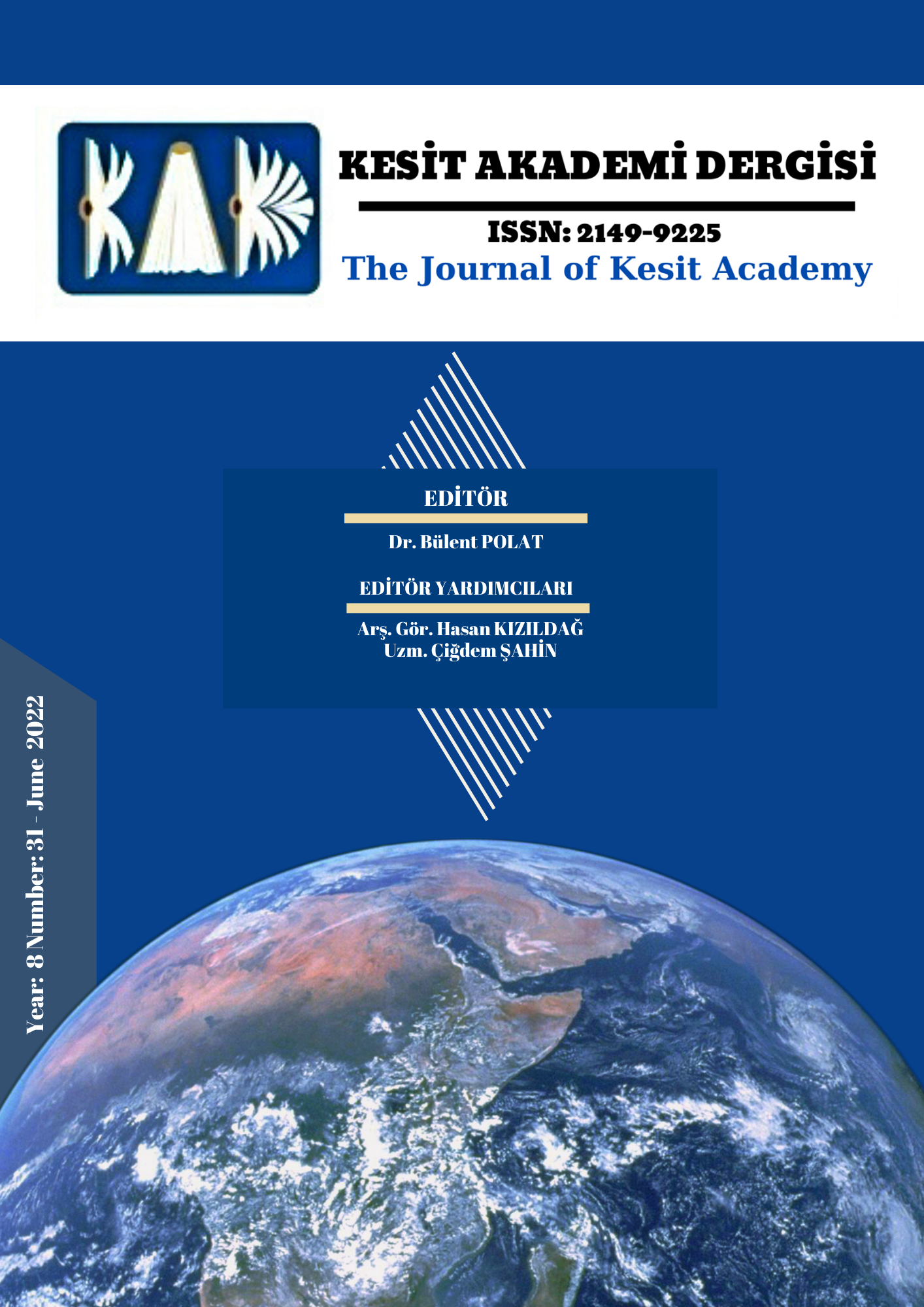Author :
Abstract
Günümüz hâkim ekonomik ve kültür politikalarının inşa ettiği gündelik yaşam alanı içerisinde bireyler sınırsız bir tüketme arzusuyla hareket etmektedir. Tüketim, kendine özgü davranış kalıpları ve normlarıyla, bireylerin, sosyal kimliklerini inşa ettikleri ve sosyal ilişkiler geliştirdikleri karmaşık pratikler düzlemidir. Bireyin kendisini sosyal alanda sergilediği ve nasıl sunacağıyla ilgili statüsel ve göstergesel anlamlarla yüklüdür. Tüketim, hem bireyler arasında sınırlar çizen, hem de benzer tüketim pratiklerini gerçekleştirenleri birbirine yaklaştıran ilişkisel sistemin önemli bir aracı haline gelmiştir. Mevcut ekonomik sistemin sürdürülmesinde araçsal işleve sahip olan reklam ve pazarlama şirketleri, bireylerin daha fazla tüketmeleri yönünde sürekli yeni imajlar, söylemler ve mesajlar üretmektedir. Teknolojik gelişmeler, farklı sosyo-ekonomik ve demografik özelliklere sahip bireylerin ihtiyaçlarına cevap verecek ve sürekli artan talebi karşılayacak şekilde mal ve hizmet üretim ve pazarlama alanlarının daha kapsamlı boyutlarda örgütlenmesine zemin hazırlamıştır. Ekonomik büyüme politikaları ekseninde karı arttırmaya dönük reklam ve pazarlama teknikleriyle sürekli arttırılan tüketim, bir yandan şirketlerin daha fazla kazanmasına yol açarken diğer yandan hedonist değerler ekseninde satın alma davranışı gerçekleştiren bireylerde psikolojik sorunlara hatta daha geniş bir alanda ise yaşadığımız çevrede büyük sorunlara yol açmaktadır. Nitel araştırma yöntemi kullanılarak gerçekleştirilen bu çalışmada katılımcıların tüketim pratikleri sosyal, ekonomik, psikolojik ve kültürel değişkenler üzerinden analiz edilmektedir. Çalışmada ilk olarak tüketim kültürüne yönelik kuramsal çerçeve sunulmakta, daha sonra yapılan görüşmelerden elde edilen verilerin kategorik başlıklar üzerinden içeriksel analizi gerçekleştirilmektedir. Araştırmanın örneklem grubu üniversite öğrencilerden oluşmaktadır.
Keywords
Abstract
Individuals act with an unlimited desire to consume in the daily life space built by today’s current economic and cultural policies. Consumption, which has its own behavioral patterns and norms that it imposes on individuals, is a complex area of practices in which individuals build their social identity and develop social relations. It is attributed with status and semiotic meaning about how individuals exhibit and present themselves in the social field. Consumption has become an important tool of the relational system that draws boundaries between individuals and brings those who perform similar consumption practices closer together. Advertising and marketing companies, which have and instrumental function in maintaining the current economic system, constantly produce new images, discourses and messages for individuals to consume more. Technological developments have paved the way for the organization of goods and services production and marketing areas in larger and more comprehensive dimensions to meet the needs of individuals with different socio-economic and demographic characteristics and to meet the ever-increasing demand. Consumption, which is constantly increased by advertising and marketing techniques aimed at increasing profits in the axis of economic growth policies, on the one hand causes companies to earn more, on the other hand, it causes psychological problems in individuals who make purchases on the axis of hedonistic values, and even in a wider area, it causes major problems in the environment they live in. In this study, which was carried out using the qualitative research method, the consumption practices of the participants are analyzed through social, economic, psychological and cultural variables. In the study, firstly, the theoretical framework for consumption culture is presented, and then the contextual analysis of the data obtained from the interviews is carried out over categorical heading. The sample group of the research consists of university students.
Keywords
- Atkinson, M. (2004). Tattooing and civilizing proceses body modification of self- control. Social Sciences and Humanities Researches, 41,125-146, https://onlinelibrary.wiley.com/doi/epdf/10.1111/j.1755-618X.2004.tb02173.x.
- Baudrillard, J. (1998). Simülakrlar ve simülasyon, (Çev.: O. Adanır). Dokuz Eylül..
- Baudrillard, J. (2008). Tüketim toplumu söylenceleri yapıları (Çev.: H. Deliceçaylı ve F. Keskin). Ayrıntı.
- Bourdieu, P. (2015). Beğeni yargısının toplumsal eleştirisi (Çev.: D.Fırat ve G.Berkkurt). Heretik.
- Chao, A., Schor, J.B. (1998). Emprical test of status consumption: evidence from wo- men’s cosmetics. Journal of Economic Psychology, 19, 107-131, DOI:10.1080/00220388.2017.1371294
- Corneo, G., Jeanne, O. (1997). Conspicuous consumption, snobbism and conformism. Journal of Public Economics, 66,55-71, https://doi.org/10.1016/S00472727(97)00016-9
- Corneo, G., Jeanne, O. (1998). Social organization, status and saving behavior. Journal of Economics, 70, 37-51, https://doi.org/10.1016/S0047-2727(98)00059-0
- Cropmton, R. (2006). Class and family. The Sociological Review, 54 (4),658-677, https://doi.org/10.1111/j.1467-954X.2006.00665.x
- Featherstone, M. (2005). Postmodernizm ve tüketim kültürü (Çev.: M. Küçük). Ayrıntı.
- Fuller, A.A. (2004). What difference does difference make? woman, race-etnicity, social class and social change. Race, Gender and Class, 11(4),829,https://doi.org/10.1111/j.1471-6402.2008.00458.x
- Giddens, A. (2000). Elimizde kaçıp giden dünya (Çev.: O. Akınhay). Alfa.
- Giddens, A. (2004). Modernliğin sonuçları (Çev.: E.Kuşdil). Ayrıntı.
- Glaeser E. L.,Kolko, J.,Saiz, A. (2001). Consumer city. Journal of Economic Geography, 1, 27-50, https://doi.org/10.1093/jeg/1.1.27
- Hunt, M.O. (2004). Race/etnicity and bliefs about wealth and poverty. Social Scince Quarterly, 85(3),821-853, https://doi.org/10.1111/j.0038-4941.2004.00247.x.
- Ireland, N.J. (1998). Status-seeking, income taxation and efficiency. Journal of Public Economics, 70,99-113, https://doi.org/10.1016/S0047-2727(98)00062-0
- Keller, K. (1992). Nature and work in the middle class-imagery from women’s maga- zines. International Journal of Politics, Culture of Society, 5(4),580-590, https://www.jstor.org/stable/20007062
- Paterson, K.,Hughes, B. (1999). Disability studies and phenomenology: the carnal poli- tics of everyday life. Disability and Society, 14(5), 597-610, https://doi.org/10.1080/09687599925966
- Piron, F. (2000). Consumer’s perceptions of the country of orgin effect on purchasing intentions of in conspicuous products. Journal of Consumer Marketing, 17(4), 308321.
- Shaughnessy, O. J. (2002). Marketing the consumer society and hedonism. European Journal of Marketing, 36(5/6), 524-547. DOI:10.1108/03090560210422871
- Shaughnessy, O. J. (2007). Reply to criticisms of marketing, the consumer society and hedonism. European Journal of Marketing, 41(1/2),7-16,DOI 10.1108/03090560710718076
- Tatzel, M. (2002). Money worlds and well-being: an integration of money dispositions, materialism and price-related behaviour. Journal of Economic Psychology, 23, 103126, https://doi.org/10.1016/S0167-4870(01)00069-1
- Veblen, T.B. (2015). Aylak sınıfın teorisi kurumların iktisadi incelemesi (Çev.: E.Kırmızıaltın ve H.Bilir). Heretik.
- Warde, A.,Tampubolon, G. (2002). Social capital networks and leisure consump-tion. The Sociological Review, 50(2), 156-180, https://doi.org/10.1111/1467-954X.00361
- Williams, R. (2003). Consumable art the client- consultant relationship. Managerial Au- diting Journal, 18(2), 134-139, DOI:10.1108/EUM0000000006084





